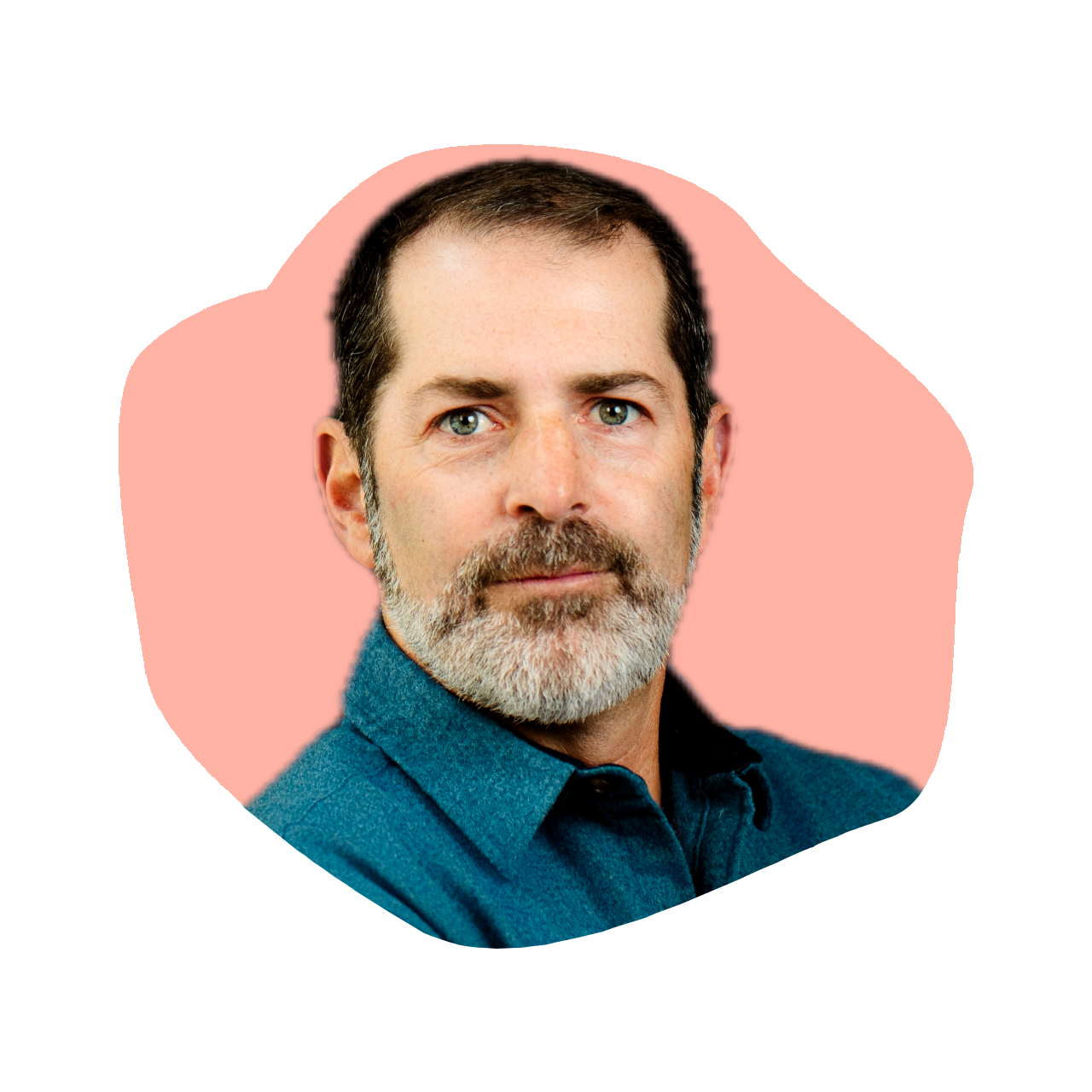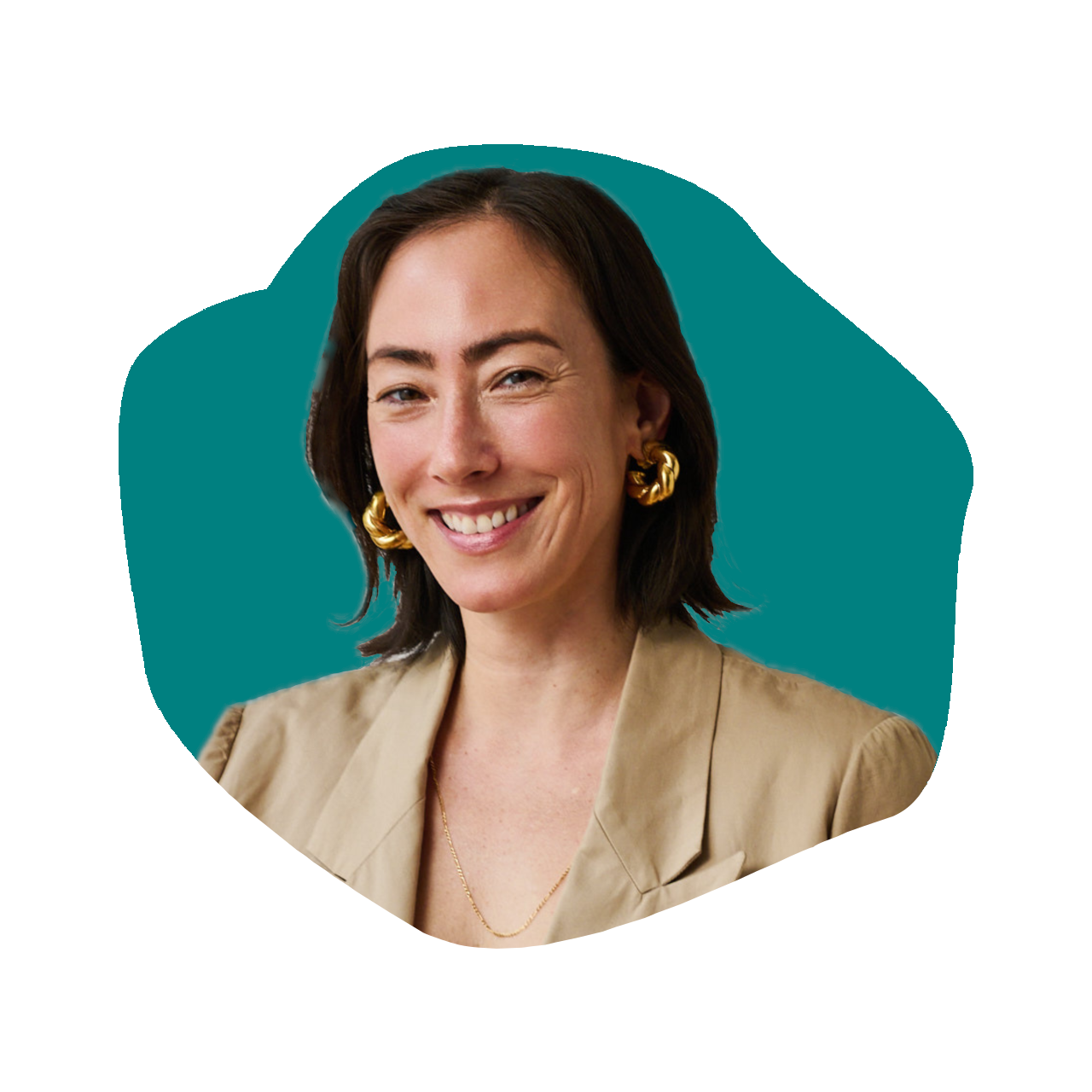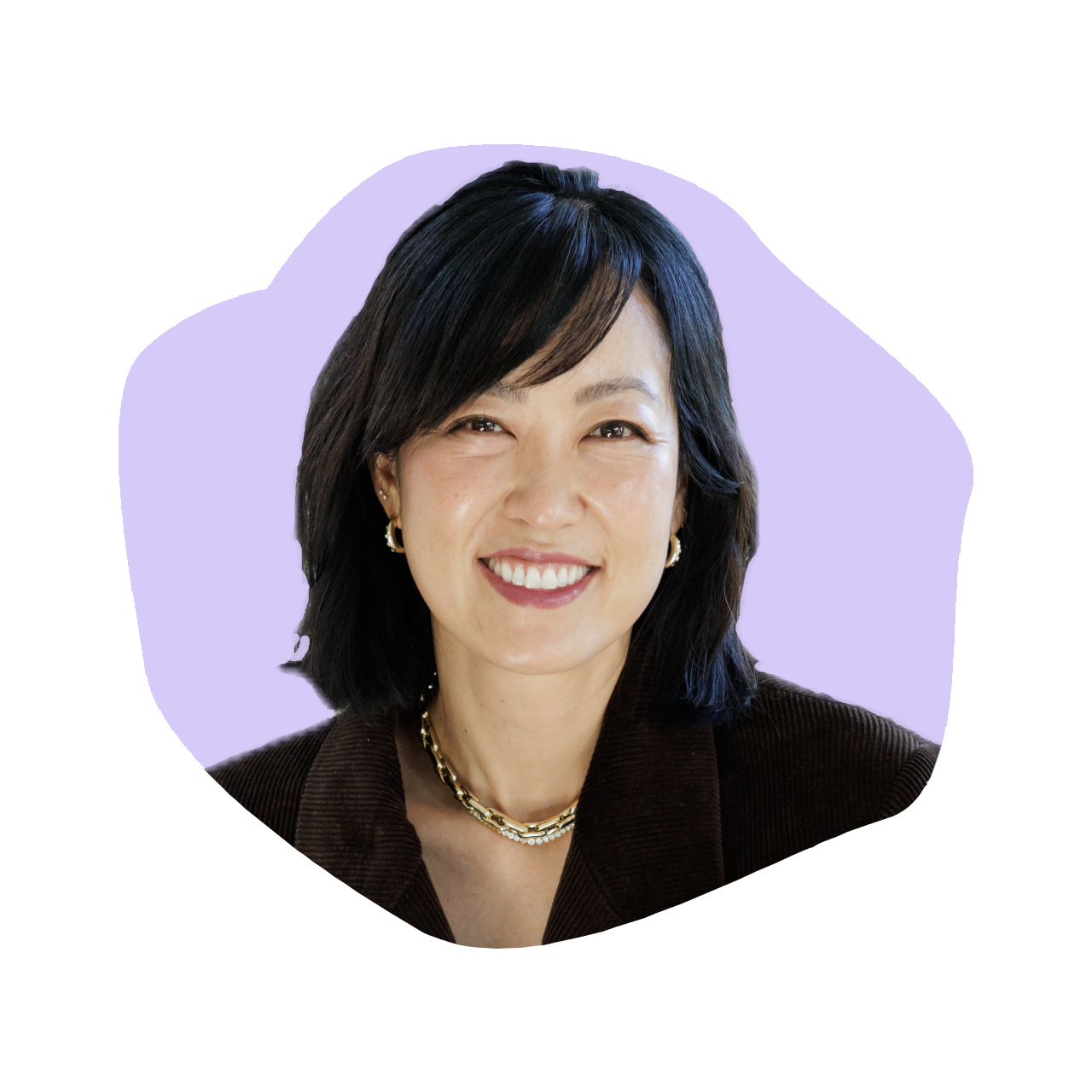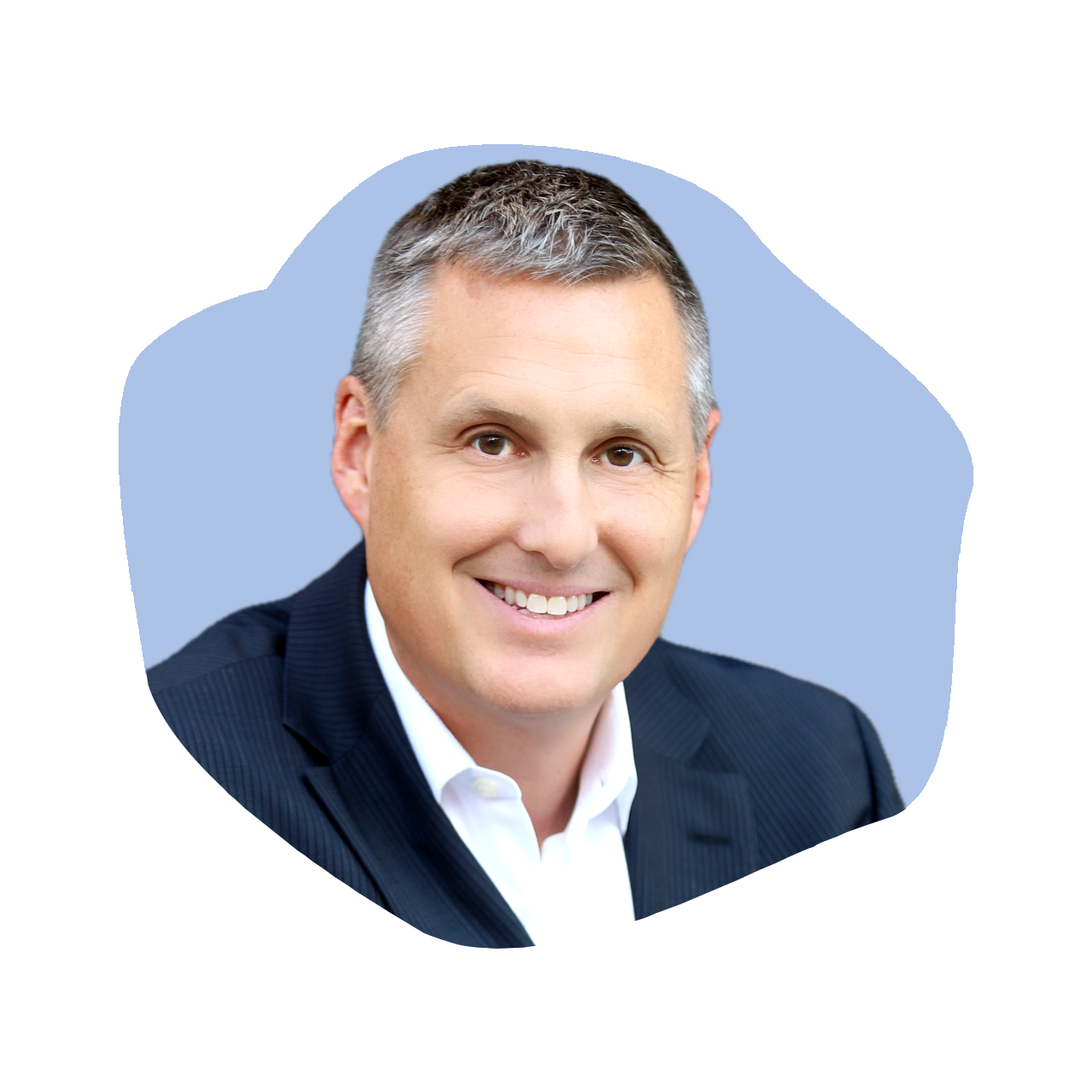Sandrine Dixson-Decleve: Author of Earth For All
Episode 621
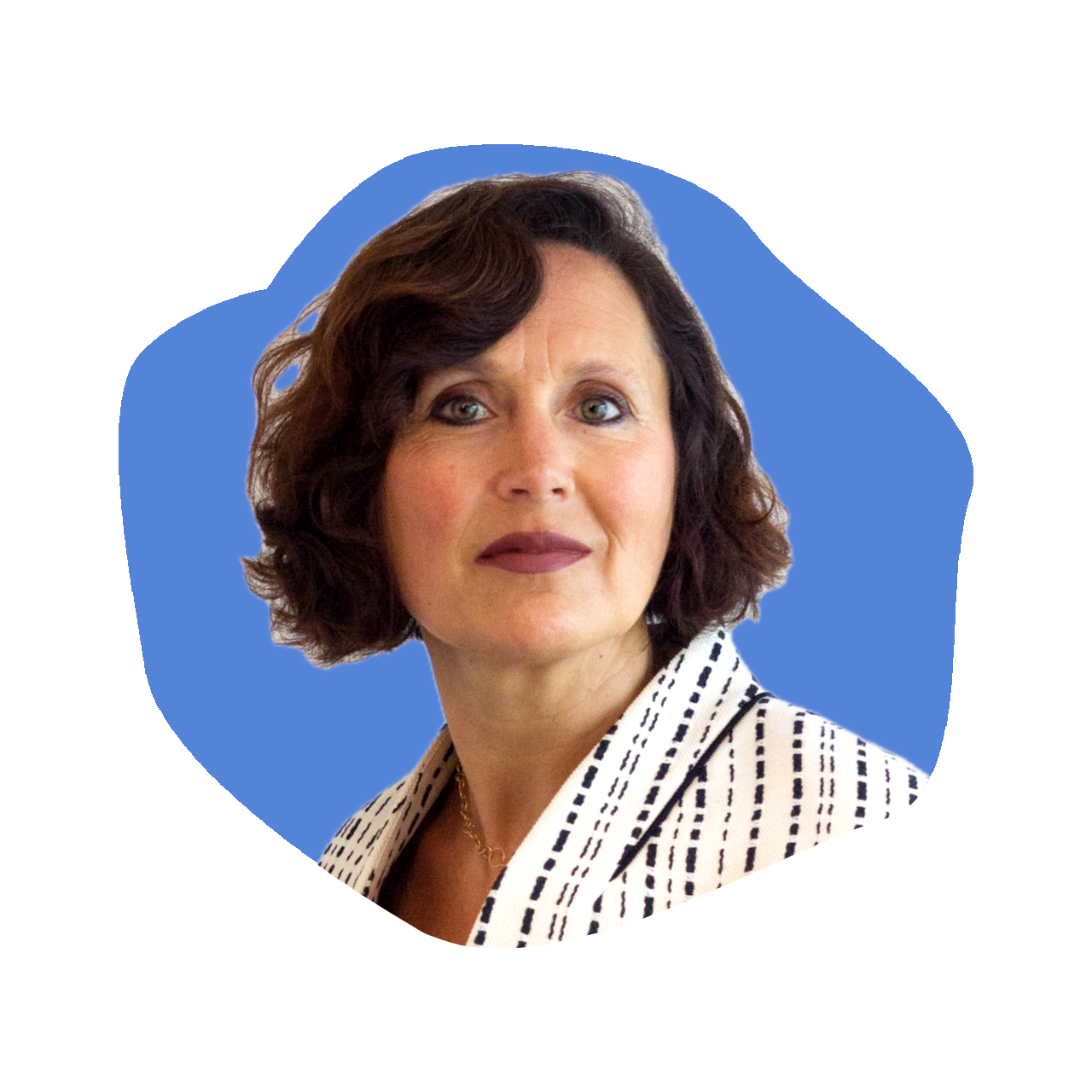
On this episode of The Kara Goldin Show, I’m joined by the influential Sandrine Dixon-Decleve, a visionary leader, author, and passionate advocate for sustainable development and climate action. Sandrine has dedicated her career to working alongside world leaders, policymakers, and activists, focusing on some of our planet’s most urgent challenges: climate change, economic inequality, and social instability. With a background in energy, environmental impact, and social equity, she’s a powerful voice for the systemic change we need.
In her latest book, Earth For All, Sandrine presents a bold and urgent framework for tackling today’s most pressing global issues, emphasizing the need for holistic transformation across society. Her insights aren’t just inspiring—they’re a roadmap for creating a more sustainable and just future. In this conversation, Sandrine shares impactful lessons from her book, her thoughts on the role of individual action, and what we can all do to contribute to a thriving planet.
This episode is packed with valuable lessons on sustainability, systemic change, and leading with purpose. Don’t miss it! Tune in now on The Kara Goldin Show!
Resources from
this episode:
Enjoying this episode of #TheKaraGoldinShow? Let Kara know by clicking on the links below and sending her a quick shout-out on social!
Follow Kara on LinkedIn – Instagram – X – Facebook – TikTok – YouTube – Threads
Have a question for Kara about one of our episodes? Reach out to Kara directly at [email protected]
To learn more about Sandrine Dixon-Decleve and Earth For All:
https://www.linkedin.com/in/sandrine-dixon-decleve/
https://twitter.com/SandrineDDC
https://earthforall.org/
Transcript
Kara Goldin 0:00
I am unwilling to give up that I will start over from scratch as many times as it takes to get where I want to be. I want to be you. Just want to make sure you will get knocked down. But just make sure you don’t get knocked out, knocked out. So your only choice should be go focus on what you can control. Control. Hi everyone, and welcome to the Kara Goldin show. Join me each week for inspiring conversations with some of the world’s greatest leaders. We’ll talk with founders, entrepreneurs, CEOs and really, some of the most interesting people of our time. Can’t wait to get started. Let’s go. Let’s go. Hi everyone, and welcome back to the Kara Goldin show. Super, super excited to have my next wonderful guest with us here today, Sandrine Dixson-Declève, who’s an influential thought leader, author and advocate for sustainable development and climate action and a prominent voice in the fields of energy, environment and social impact, she has spent years working with world leaders, policy makers and activists to drive transformative solutions for our planet, and her work is really centered on tackling the pressing issues of climate change. And she is a serial author, but her latest book is absolutely incredible, Earth For All which, if you’re watching, I have it right here, is really, really inspiring and very, very her vision for thought provoking and above all, timely ideas and solutions are just absolutely something that cannot be missed. So I can’t wait to chat with Sandrine a little bit more about this and everything that she is going to be doing around this as well. So thank you so much for joining us today. Sandrine,
Sandrine Dixson-Declève 2:03
thank you for having me. Kara. I’m really looking forward to our conversation. Super
Kara Goldin 2:07
excited. So you so let’s start with the inspiration behind the book, Earth For All, you’ve done a lot of really important things around really change and the environment, but also initiatives around sustainability. Was there a pivotal moment or realization that you had to go and do this? I mean, it’s, it’s really a bigger project. It’s not just about the book, but really, what was it that made you think I’ve got to go and do this? So
Sandrine Dixson-Declève 2:40
I’m leading as president of the Club of Rome, an organization that actually published the Limits to Growth 50 years ago. And so when it became the 50th anniversary, actually, that was 52 years ago, we decided that we needed to commemorate the publication of limits to growth with a new version that was 21st century proof. And in particular, my feeling was that we needed to have a collaboration with scientists and economists from across the globe to think through what’s an alternative future for the world. That’s why we call it Earth For All the survival guide for the future. It’s, it’s not just about a bunch of solutions. It’s also using, actually a foundational basis called system dynamic modeling, which allows us to look at social and environmental tipping points at the same time. And what’s really interesting is, if anybody has heard of the limits to growth, which was published in 1972 already the limits to growth which use this system dynamic model already predicted that pretty much in the 2020s we’d start to see social and environmental tipping points. And lo and behold, here we are, with all of the impacts that we know about, not only from an environmental perspective, but also social tensions going up. We’ve seen what’s just happened in the US in terms of the election of Trump, but we’re seeing it in many other countries, radicalization of many of our governments. Because there is economic instability, there is growing political instability and and there also is growing crises. We’re in the midst of a poly crisis, so the compound effect of all of that means that we need, it really, to come up with some ideas of what then can be the future in this 21st century poly crisis world.
Kara Goldin 4:32
So you introduced the five turnarounds and really as the critical steps for global transformation. Can you break down each of these steps for everyone?
Sandrine Dixson-Declève 4:43
Yeah, and thank you, Kara, I’m so happy that you’ve read the book and that you’re mentioning the five turnarounds. The five turnarounds are very much anchored in what we call planetary boundaries science, which was started by Johan robstrom and other scientists very well known climate. Psychologist. The reason why it’s so important is because what we notice with the planetary boundaries. So by the way, we’ve gone out of seven of the nine planetary boundaries. So this includes greenhouse gas emissions. We’re out of scope on all those seven. And that includes nitrogen contamination, that includes issues with water, etc, etc. I’m not going to go into the detail, but what was really important again in our system dynamic modeling, was that we saw that the speed and scale of staying within the planetary boundaries which humanity has to do in order to survive, is actually directly linked to poverty and inequality. So if we want to deal with the planetary boundaries. If we want to deal with climate change, if we want to deal with biodiversity loss, we actually have to address poverty and inequality. And it’s interesting, because poverty and inequality are two of the key turnarounds. But then in addition, is empowerment? Why is empowerment important in particular for women, for a variety of reasons in the Global South, it’s because still, the majority of women don’t have access to education, and this creates issues also access to land. Most of our farmers in African countries are women, and they don’t even own their land. They can’t make their own decisions, and yet, they’re the ones that are producing most of the farm goods that people need. So that insurance of empowerment of women not only enables more decision making, but it also enables more women to be educated, which then means that they make decisions with regard to their own bodies. They start to say, Oh, well, maybe I don’t need to have five kids to survive, or seven kids, which then reduces population growth in again, the global south in some ways, and enables the economy to start to service more people, because you’ve got less people to feed, and you’ve got more women that are actually part of the decision making process. Well, that’s really important in Africa. It’s really important in the Global South, but it’s also, we know, important across the globe, because empowering women also enables very diverse types of choices, policy making and decision making across and you, having been part of the corporate decision making structure as a woman, it’s so important to also ensure that we make very different decisions for the future. So those three go together, poverty, inequality and empowerment, and then they’re the kind of two no brainers I call them, because everybody seems to focus on them, and that is food and changing the food system and energy, and that’s kind of the underbelly, because we will only survive if we actually reduce our emissions, and if we reduce the impact on the planetary boundaries through our food system and our energy system, by empowering women, but also by reducing poverty and inequality. And what’s interesting is the five go together. If we actually realize the five, we know that we can optimize our economic and our financial systems to start to service those five and work in sync. So what does that look like? For example, on poverty, you eliminate debt, or you do debt cancelation in certain countries, or debt for nature swaps, you start to also look at what we call Special Drawing Rights, which are enabling, actually, countries to have more financial resources to make the just transition. Or you, for example, start to tax the wealthy. If you’re looking at the inequality turnaround the super wealthy, because we see, for example, that it is the super wealthy that are making pretty much 10% of the emissions, whether they be in the Global North or they be in the Global South. And in addition, they’re the ones that control predominantly, most of the economy, which is creating this disenfranchisement of those that are getting increasingly poor, particular in the global north, and also the difference between the global south and the global north, which is becoming increasingly unequal. So all of those factors, believe it or not, only cost us two to 4% of GDP per year, and that pretty much, by the way, is a fraction of the global defense budget. So not only are we talking about a new global model, but we’re also talking about a new way that we look at positive peace, that we look at investing in people rather than in war. There’s a variety of ways to look at this book as a way to start to make choices that place a value on people being healthy and the planet being healthy, and us actually getting through the poly crisis in a more thriving manner, rather than just survival mode.
Kara Goldin 9:46
So in a time where you feel, or I certainly feel, and I think you do as well, where countries are divided, the world is divided about what should happen, how do you actually. Actually go and get started. How do you get somebody, for example, who is running a country to give more respect to women and women’s rights? Or, like, how do you do that?
Sandrine Dixson-Declève 10:12
Yeah, so you open up with really difficult conversations. Of course, I think on the empowerment side, especially in in the Global North, obviously, there’s much more of a dialog, and there has been, but believe it or not, also in the Global South. I mean, we know in Africa that many women are actually heads of their communities and are given that power. But then when it comes to decision making at the government level, they’re not. I think what’s most important is to understand that actually, if we don’t do this, we don’t really have a chance of survival. And I really mean that. I really mean that we have to change the way in which we engage with the economy and the way in which we engage with people. And so what we do is, for example, we’ve set up a series of national programs. I’ll give two examples, one in Kenya and one in Austria, where we have worked directly with the government to put in place those five key turnarounds. And start saying, well, then what are the policy recommendations for each of those turnarounds? So I talked about debt cancelation, for example, or wealth taxation, which, by the way, is getting a lot of discussion right now, both at the OECD level and also at the UN. Even the UN is setting up a whole new group on looking at beyond growth and thinking beyond GDP. So these are not kind of weird woo, woo ideas. These are ideas that are also anchored in live conversations. But in Austria, for example, we then turned the whole model into, what does this mean for Austria? What’s the Austrian context? What are the key issues for Austria? And we made it also people friendly. So we started to engage with citizens. One of the big ideas that we have is to have town halls and citizen assemblies, to re democratize, actually, our governance, so that people are really engaged. And we do have examples of that happening in, for example, France and other countries. And there’s also a conversation at the UN level. So that’s one thing. So the for example, the Chancellor of Austria, the leader of Austria, opened up Earth For All and the national program and and launched our report with together collectively with the government. The other example is, is, for example, in Kenya, where we worked with different policy makers, but we also worked with a local Economic Institute to try to, again, translate the data so that it makes sense from a Kenyan context, and then figure out, Okay, what does this mean in terms of implementation, again, policy recommendations, etc. So every time we unpack the kind of global data, the global thinking, and we make it more national or even local we’re having conversations with mayors from across the globe who are super excited in particular because they see growing inequality on their doorstep. They want solutions, and they want to figure out, what are the stories, what are the narratives that enable us to engage with people, with with citizens in our cities that will really bring them on this journey.
Kara Goldin 13:22
So Earth For All addresses the transition from fossil fuels to renewable energy. What are some of the biggest misconceptions about this transition, and How can governments or individuals help shift the narrative?
Sandrine Dixson-Declève 13:39
Thank you for asking that question. Just to be clear, my background is in energy, and I worked with the oil and gas sector for 10 years. In fact, one of my key points of sadness and disappointment is to see how the oil and gas sector, from the 2000s now today, have really shifted out of renewables and gone back to business as usual and gone back to big profit, rather than in those days, really entered into deep conversations around, how can I be an energy supplier, not just an oil and gas supplier, how can I diversify? How can I have less of an impact. And so I find that incredibly depressing. I think we need to call out the oil and gas sector. I think the fallacies are the following. Number one, we have trillions of dollars that are being made right now by oil and gas companies because they’re subsidized, and these energy subsidies can be turned into a just transition fund that could actually be a global fund that would enable us to put in place what’s necessary, not only to invest in renewables, and actually the investment in renewables was going in the right direction, until about this year, when many oil and gas companies started to pull out and investors got a little bit risk of. Worse in terms of what was happening, but that is one so subsidies. The other is, I am sorry, but the immorality of oil and gas companies that are making 2.8 billion in profits per day per day, that are not being taxed, and actually people, especially in the US. Part of the the Trump landslide is the fact that people’s lives are hard and they’re paying more energy. They’re paying more for their oil and gas bills, for their heating bills, etc. Now this is necessary. It really is, because actually, to be frank, the US never paid the real value of oil and gas and energy, whereas the rest of the world, in particular, in Europe, have paid twice the amount that the US have. So the price has to go up. But what’s important is that American citizens need help, and so how could we help them, not through subsidies, but enabling them to actually transition towards different types of transport, which, again, is one of the key issues that we have in the United States, that we have no access to different types of mobility except for large highways and cars. Of course, electrification is important, and we need to enable people to buy electric cars, and for the moment, more hybrid cars, but definitely electric vehicles. And there are issues with that too. We can go into that in a second, around the minerals and and obviously the mining and the metals. But the fact is, we’re not helping citizens right now in being part of that transition, we’re making them bear the cost. And although they should bear some of the cost, it needs to be properly distributed so that actually the wealthiest are really paying the cost, and most importantly, that the polluters are paying. And this is what we call the polluter pays principle, that actually it is the oil and gas companies that should be taking their windfall profits. We should be taxing it and actually putting it again in a just transition fund, or an enabling fund for citizens to be able to make ends meet. The the energy poverty issue is huge, and it I just find it completely immoral that the oil and gas companies are being enabled to continue to make such profits on the back of growing energy poverty around the globe. It really is despicable, and I think that’s that’s really key. So those are some of the issues with regard to oil and gas, but we’re faced with a really big problem, and that is that the profits are so high now, that the greed is so big, that we’re seeing the big pushback from the oil and gas majors, and we’re also seeing it right now playing out at the climate negotiations in Azerbaijan, where the President has opened up yesterday the cop by declaring that oil and gas is a gift from the gods and that we need to continue to enable the burning of oil and gas when we know that we have the highest climate effects we’ve ever had, and where we know that actually we’re moving towards 1.5 degrees on average by 2030 and that there we will lose at 1.5 degrees, at least 3% of global GDP. So the cost of inaction is going to surpass now the cost of action.
Kara Goldin 18:30
Totally agree it’s it’s just frightening on many, many levels. So I loved your discussion around net zero. And talking about, obviously, that’s been a very popular topic in the climate discussions, but you offer a really fresh perspective of it. Can you share a bit about that? Yeah,
Sandrine Dixson-Declève 18:55
I mean, I think that net zero is also linked to greater well being, and we don’t talk enough about that. And you know, because you live in the Bay Area, I grew up in the Bay Area, and I go back to the Bay Area, and I don’t see the Bay Area I grew up in. I see instead well being going down. I see social tension going up. I see the greatest homelessness we’ve ever seen. I see drug addiction, etc. And so what I talk about is we talk about actually net net zero poverty, Net Zero inequality and net zero carbon going together. It’s a trilogy, and this should actually enable people to live better lives. I just, I just, actually was listening to a BBC program just now on India. And right now they are so hot. They’ve had such heat spells, and there’s so much toxicity and pollution in the air that they are they’re staying inside, and they can’t survive. Several people actually. Middle Eastern students that joined me in a talk that I gave in Austria just a couple months ago said to me, what has anybody considered what it’s like to just live inside? Because in some countries, it’s getting so polluted and and the emissions are getting so bad that the temperatures are so high. I was just in Singapore as well. They’ve had some of the highest temperatures they’ve ever had. This is getting unbearable. It’s unlivable, and we know it is. So this, this net zero concept, is not some kind of nice to have. It’s actually, how do we introduce less consumption into our lives. We know that during COVID, we could live with less, and we know that actually during COVID, we came back to what was most important, our families, surviving and being healthy, having access to health care, having access to hospitalization, having access to medication, being able to still continue education, all the things that actually are the most valued in society, that are not just valued because they have a huge dollar bill on top of them. In fact, they should be valued more in terms of the monetary value, but they’re not all of those things that that make us actually human again and and and able to cope with the all of the other things that we’re seeing came back to being front and center in our lives. And that’s what this whole kind of net zero well being idea is all about. That if you put in place those five key turnarounds if you really drive the economy to go beyond just productivity and start to service people’s needs. Because let’s be very clear for the moment, our economy and our financial system is driven by shareholder value purely. There has never been a time where you could fire more people and your shares go up. There has never been a time where CEO packages have unfortunately been so high, and no one is saying that CEOs shouldn’t be making good money, or that there shouldn’t be some profit within a company in order to continue to thrive, but it’s become immoral. I don’t know if you know, but CEO salaries in the United States since the publication of our book, the limits to growth in 1972 have gone up by 1,400% 1,400% employee salaries by 18% inflation by 30% no wonder people are pissed off. Now, there is a bit of a perversity in then electing a president that is so wealthy that is part of the problem. But I’m not going to go into the politics today, but it is. It is incredible that somehow people are so lost that they’re choosing now governments that are not necessarily going to make their lives better, but that talk the Good talk, and I think that is where we need to make sure that we really focus on those that are the most disenfranchised and those that really are suffering from that growing Inequality
Kara Goldin 23:18
definitely. So I love how you articulated that. But okay, so the private sector has massive influence. Many of the listeners that are listening to the Kara Goldin show are entrepreneurs, CEOs of companies that want to be innovative, want to do the right thing for their consumers and and also, a ton of universities across the globe are actually listening to this podcast as well. So how, what would you say to companies or CEOs who are unsure of how they can contribute to the turnarounds in Earth For All
Sandrine Dixson-Declève 24:01
the first thing I would say to CEOs is be part of the solution, not part of the problem. I look at the IT sector, and I look at the way it’s devastated the Bay Area, and just setting up foundations is not going to help, or having a wing at Stanford University, or any of the other universities, the fact of the matter is that the fabric of society has been so disturbed by the extreme wealth of certain people, and not redistributing that wealth the housing market. All of these are impacts of that inequality that I’ve been talking about. So any CEO should have as its mission and vision to service people’s lives and livelihoods, to stay within the planetary boundaries, innovate till the cows come home, find solutions and if, if, and of course, make the necessary profits, but don’t drive the. Morality that we now see in the business sector, where there is never enough, and that’s what really gets me. Innovation is to try to make people’s lives better, not actually to make it worse. It’s not just for a few, it’s it’s for the many. And that should not be about communism, that should be about humanity, about how we can be human again. And that would be my call to CEOs. And there are incredible leaders as CEOs, who have called out the shareholder dependency system, who have called out the curly reports, who have called out the pressure that they’re under to only drive productivity and to make money, rather than to develop products and services for people, planet and prosperity. And I think more CEOs like that need to stand up to the plate and continue to show that it is possible, because we know it is, and it shouldn’t just be Patagonia, or it shouldn’t just be Unilever or it shouldn’t just be a few, it should be the many. So that would be the first from from the academic institutional perspective, I think it is the responsibility of universities to go back to teaching critical thinking. It’s the responsibility of academic institutions to not dumb down people so they only thing they want to do is do business in order to make more money. It should be cool to go to school and learn, simply to learn, not just to make a huge amount of money at the end of the year or be a millionaire. Now that doesn’t mean that we shouldn’t enable people again to be able to thrive and to be able to have the right incomes. But it does mean that what we need to teach is going back to what then is learning. There are no limits to learning. You know, there is a book that was published by Aurelio Pacha after the limits to growth, that there may be limits to growth, but there are no limits to learning. Where did that go? And I think that is part of the problem that we see in our society, that actually now it’s not about learning, it’s about how much money can you make. It’s about not even going to school. Because school, obviously, we’ve seen from all of the big millionaires that you don’t need to go to school anymore, but school was about teaching us moral value. School was about teaching us how to learn how to evolve. It was about teaching us different subjects that we may not have actually encountered. So I think it’s really important that academic institutions also reinvent themselves so they become re exciting again, and that we enable more and more people to learn. And it doesn’t just have to be academic institutions, by the way. We need to enhance skill sets. We need to enable learning in a variety of different ways, whether they be through community centers or through different types of knowledge exchange. Couldn’t
Kara Goldin 28:01
agree more. I mean, I think it’s definitely one that has, I’ve seen shift in the last 10 years in particular, and it’s, it’s really frustrating, and it’s, we’ve got to be looking for this next generation and trying to reset this for them. Because I think that that’s, that’s just so key, but so Earth For All. I mean, I could talk to you all day about this. It was, it, it’s a short book, but packed with so much to think about. And I kept rereading things, which is always a good, yeah, no. It was, well, much it was, it was terrific. And so I know this is a bigger initiative and and what are are you doing with Earth For All today and going forward? So
Sandrine Dixson-Declève 28:51
it’s actually been translated now in 11 languages. Believe it or not, it’s being translated in Estonian next month, which is pretty incredible. Love it. It’s been translated in Chinese, in Spanish and French and English and German and many other languages. So part of the idea in Earth For All was, let’s make sure that we translate it, but then when we translate it, let’s, as I said, put in place those national programs. Believe it or not, even the Ukrainian government has contacted us to ask us if we could work with them to rebuild Ukraine. And that’s quite phenomenal that they want to build from scratch, something which an economy which is much more sustainable, and that really enables their people to thrive after all of the pain and suffering that they’ve had through the war, and they continue to have. And let’s see what happens with that. But the other aspect of this has been, how can we actually translate Earth For All into a variety of different narratives and storytelling? So, for example, we were just at the UN summit of the future, and at the UN summit of the future, we had big panels everywhere on the UN premises showing the difference. Between New York under the too little too late scenario, which, as you know, is the scenario, which is pretty much business as usual, and the difference with the giant leap scenario. So for us, it’s really important to translate Earth For All into visuals. We’ve been asked by the Pope, so we worked with the Pope on a documentary, which he actually invited us last year, so I got to meet the Pope, and we’ve worked with him, and we will continue to work with him, because he published la dato C and has been very much anchored in really believing that social and environmental values are fundamental to getting us out of the mess that we’ve created as a humanity. We are working also with young activists across the globe. Youth is very important, and so we have a youth leader who is working with the youth both in terms of opening up conversations, having youth festivals. We are also working on the possibility of having a series of global assemblies and different citizen assemblies. And then, in addition to that, we’ve been working with the UN who commissioned us to translate all of our data in toward in terms of regional reports that would enable countries to better understand and regions how to meet the sustainable development goals. And so we’ve just completed our Africa report, which we launched at the summit of the future. We’re working also on another report on Latin America. So we are continuing, but really Kara what we’re trying to do, and what I’ve really wanted to do, is, how do I translate, and how do we all translate that incredible knowledge and that science into ways in which people will understand the messaging, and that’s what we try to do as a first step in the book. But now, by using more visuals, by using storytelling, we’ve got several influencers that are working with us as well, tik tokers, that are translating all of the theories into quick messages. And then, most importantly, how do we bring more people on the journey? So there are more and more book clubs. There are more and more people that are saying we want to be part of this journey. And how do we connect the dots between warriors on the ground that are trying to make change and and the theory of change that we’ve put out there. So for me, that’s really creating ecosystems of change, empowering people so that they feel that they’re they could be part of this vision. Some of them already are health workers, hospital workers, CEOs that are doing the right thing, that are really how do we bring everyone together these major change agents at this time when it’s so difficult, and empower them, give them hope and connect them so that they feel that together, we can really do this.
Kara Goldin 32:53
Sandrine, thank you so much for not only joining us, but all the incredible work that you’re doing Earth For All everyone, we’ll have all the info in the show notes as well, but also all the links to all the rest of what Sandrine is doing. So thank you again, and thanks everyone for listening.
Sandrine Dixson-Declève 33:14
Thank you
Kara Goldin 33:15
Thanks again for listening to the Kara Goldin show. If you would please give us a review, and feel free to share this podcast with others who would benefit. And of course, feel free to subscribe so you don’t miss a single episode of our podcast, just a reminder that I can be found on all platforms. At Kara Goldin, I would love to hear from you too, so feel free to DM me, and if you want to hear more about my journey. I hope you will have a listen or pick up a copy of my Wall Street Journal, best selling book, undaunted, where I share more about my journey, including founding and building. Hint, we are here every Monday, Wednesday and Friday. Thanks for listening and goodbye for now. You.





